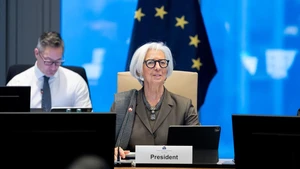Bringing together major economies such as Germany, France and Italy, the EU has made many important marks since AI first emerged as a new technology trend globally. Germany and France announced plans to invest billions of dollars in research and development of AI technology. The EU proposed many initiatives to build AI development capacity, such as the “AI4EU” initiative launched in 2019.
The European Commission (EC) recently announced an initiative to establish artificial intelligence factories (AI Factory), providing the necessary platforms and infrastructure to develop, test and deploy advanced AI applications, enhancing Europe's competitive position in the international arena.
As the race to dominate AI becomes more intense globally, there are increasing opinions that Europe and the EU must catch up with the US and China. At an event in Novi Sad (Serbia) in late August 2024, French President Emmanuel Macron admitted that the Old Continent is “a little behind” and needs to “catch up, innovate and invest more” in AI to be on par with some of the world's major economies.
The European Court of Auditors also made a similar assessment and pointed out three main reasons why Europe is lagging in this fierce race: insufficient investment in AI, projects receiving investment are not systematically managed, and cooperation in this field between countries in the region is still ineffective. According to research by the Swiss-based information platform InvestGlass, the US holds a leading position in the AI development race, with technology giants such as Google, Microsoft, etc., investing heavily in this market.
Experts say that despite fierce competition from countries willing to “open their wallets” for AI development, such as the US or China, the EU is still at the forefront of addressing risks related to this technology. In August 2024, the EU officially activated a landmark law in AI management that the bloc expects to protect citizens' rights and promote innovation. Companies will have to comply with the law starting in 2026, but rules for AI models like ChatGPT will be applied 12 months after the law comes into effect.
In fact, Europe has always been one of the pioneers in setting up regulations to manage the technology sector, typically, the EU’s Digital Services Act (DSA) has tightened control over the activities of technology “big” companies, bringing safer cyberspace for users. Brussels' regulations often serve as a template for many other regions.
Dutch Prince Constantijn has expressed concern that Europe is focusing on AI management rather than trying to become a leading region in developing this technology. This requires a change in the region’s approach. The European Council recently affirmed that for the EU to become one of the most innovative and trustworthy AI hubs in the world, the bloc needs to increase investment in AI research and development, improve access to digital infrastructure, and cooperate closely with member states and international partners to share resources and experiences.
Given AI’s huge potential for economic and social development as well as promoting scientific progress, the EU’s increased investment in this field is an inevitable step. EU officials expect that with the right investment and a clear strategy, the alliance can fully exploit AI’s potential, bringing great benefits to people and the economy.
















